'Dodgy Decisions:' But Were You Really Robbed?
'Dodgy Decisions:' But Were You Really Robbed?
The most common phrase that I heard last weekend at the 2017 IBJJF Worlds was not "great job," "congratulations," or "spectacular performance." No, it was not any form of encouragement whatsoever. The most-used word was "ROBBED."
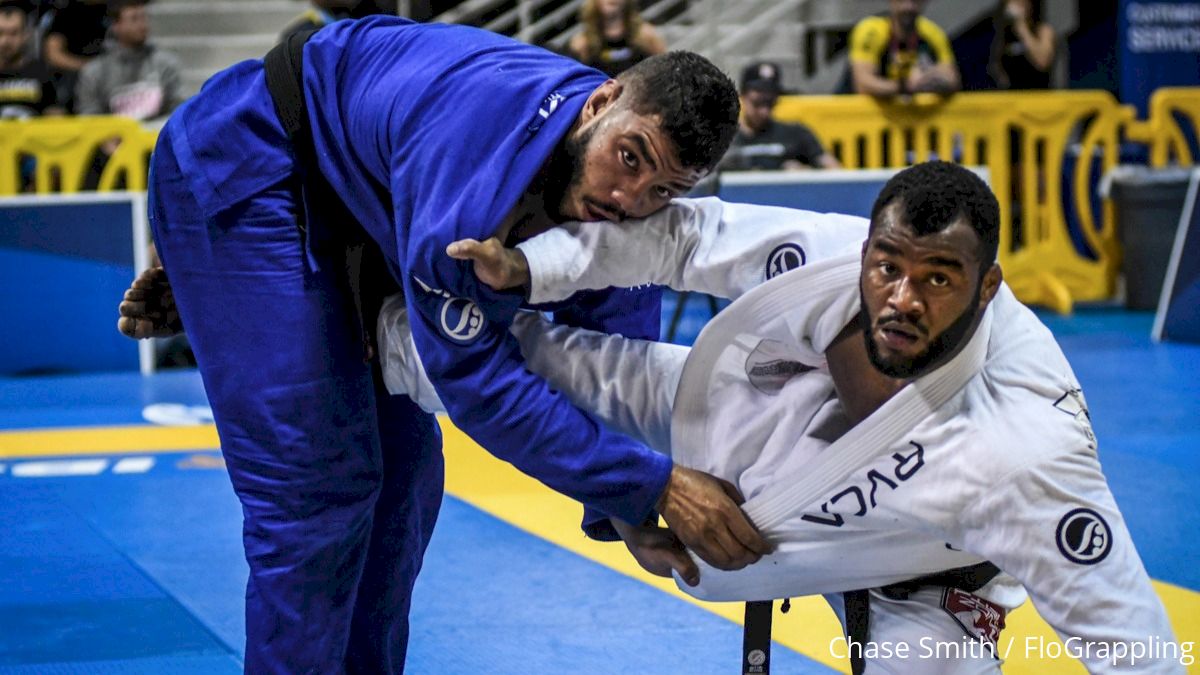
The most common phrase that I heard last weekend at the 2017 IBJJF Worlds was not "great job," "congratulations," or "spectacular performance." No, it was not any form of encouragement whatsoever. The most-used word was "ROBBED."
It was like that famous "Oprah" episode when she was handing out cars to audience members, but instead it was accusations of referee robbery: "He got robbed, she got robbed, they got robbed, we got robbed!" On and on and on… You either won your match, or you got robbed.
But the question is, did you really get robbed? Or was it just a really close match that could have gone either way?
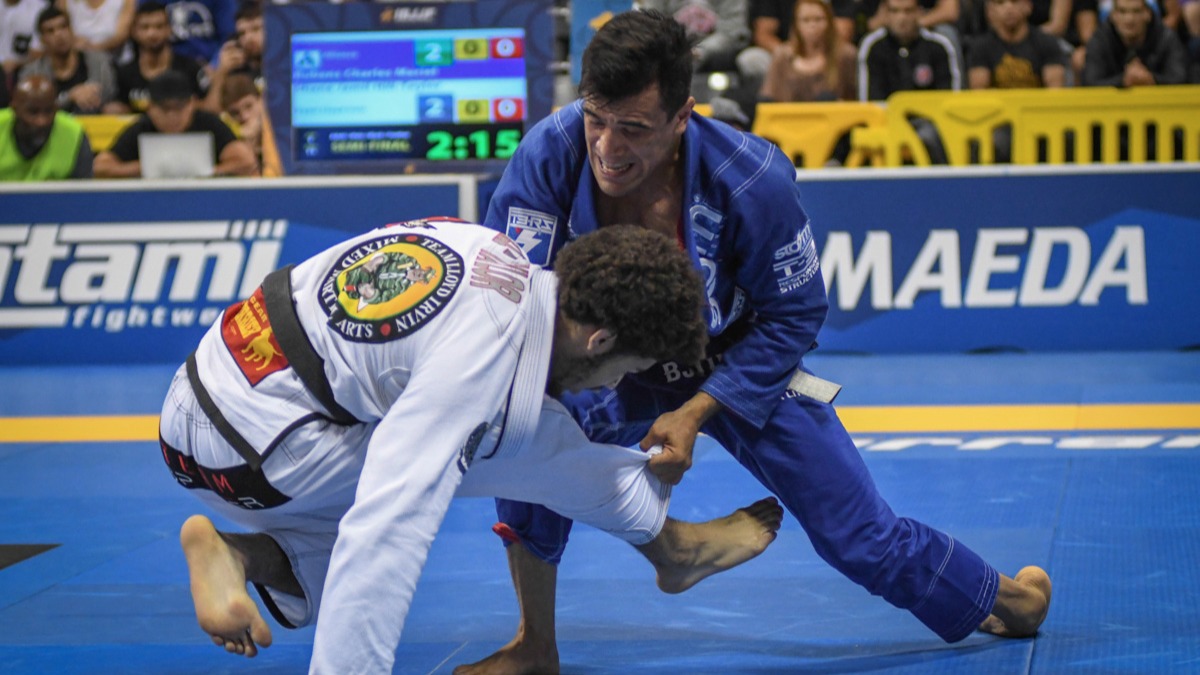
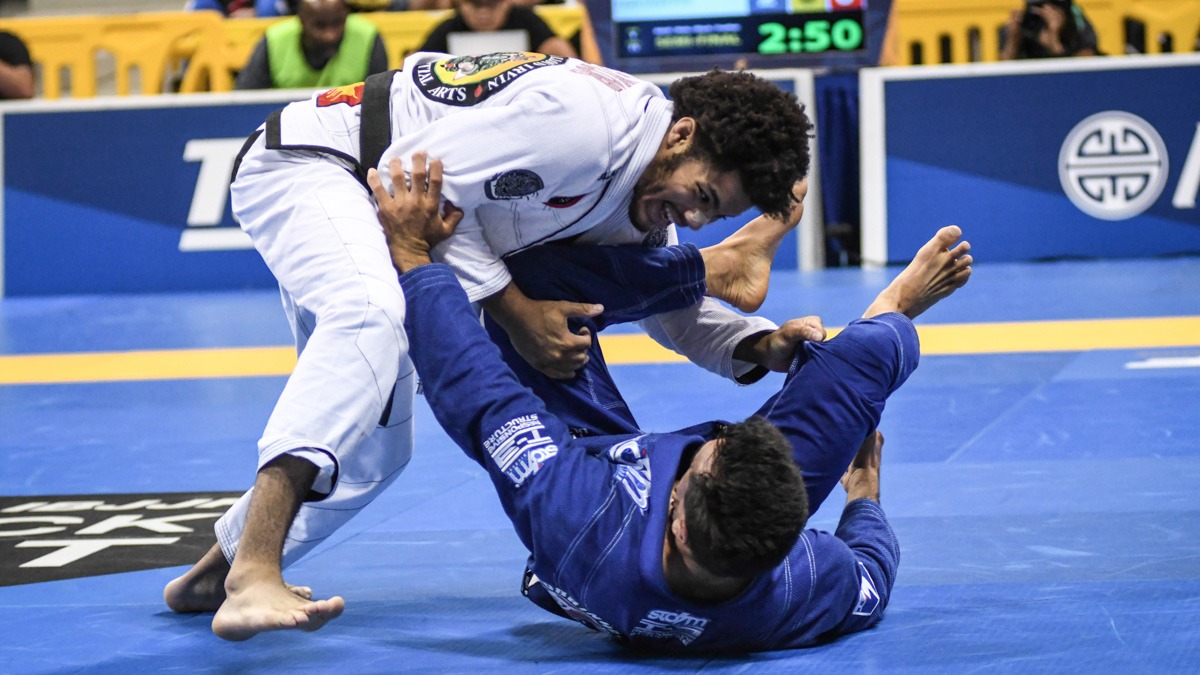
Shane Jamil-Hill Taylor versus Rubens 'Charles' Cobrinha, one of the most-talked about matches of the tournament. Cobrinha won via referees' decision after the scores were tied. Photos: Chase Smith / FloGrappling
This does not mean that the referee has to choose the athlete who was most aggressive or the athlete who attacked for the most submissions. The referee does not have to choose the athlete who controlled the majority of the match or the athlete who ended the match with a balls-deep triangle locked and loaded just as time expires.
The point is, if the score is tied, it is no one's fault except the athletes' for forcing the referee to choose a winner and a loser.
No referee is perfect. But when someone is telling me a story about how the referee robbed him or her of victory because of points or advantages, I stop listening and start thinking about how I can escape the conversation. Is that rude? Maybe. But the fact is that your perceived robbery is in the past. It doesn't matter anymore. Leave the past behind you, learn from it, and move on.
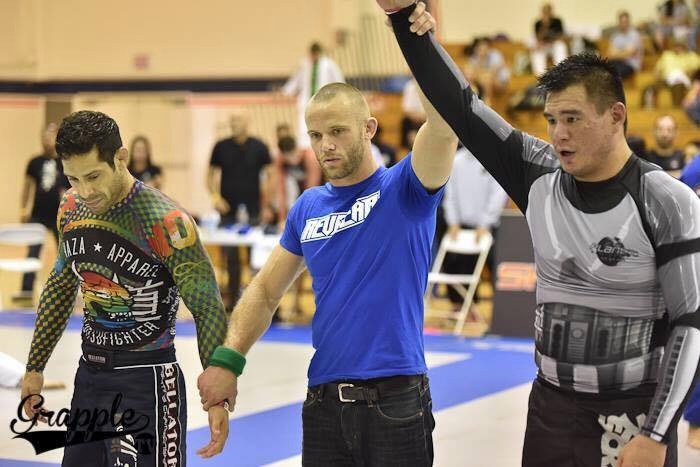
Josh Hinger on refereeing duty. Photo: Grapple.tv
After the match, I asked another referee about the rule, and as it turned out, I made a mistake. It was years ago, and I still think about it and feel bad about it. And this is why I don't referee tournaments anymore.
I made several referee decisions that day, and the matches were all unique. I made the decisions based on my jiu-jitsu instincts and what I thought was a more dominant performance. But I have no doubt that another referee could have seen the matches differently.
Instead, I think rules are applied inconsistently based on referee interpretation. For example, in 2013, Ary Farias lost his black belt world title just seconds after the finals match ended due to a penalty for stepping outside of the competition mat area as he celebrated his victory. This match has been infamously referred to as a "robbery."
As much as I hate to admit it, the penalty was correctly given based on the way the rules are written. However, I have seen many athletes step outside of the competition mat area without receiving a penalty. It is hard to say that it was robbery when the rule is enforced as it is written. The problem is inconsistent rule enforcement -- not robbery.
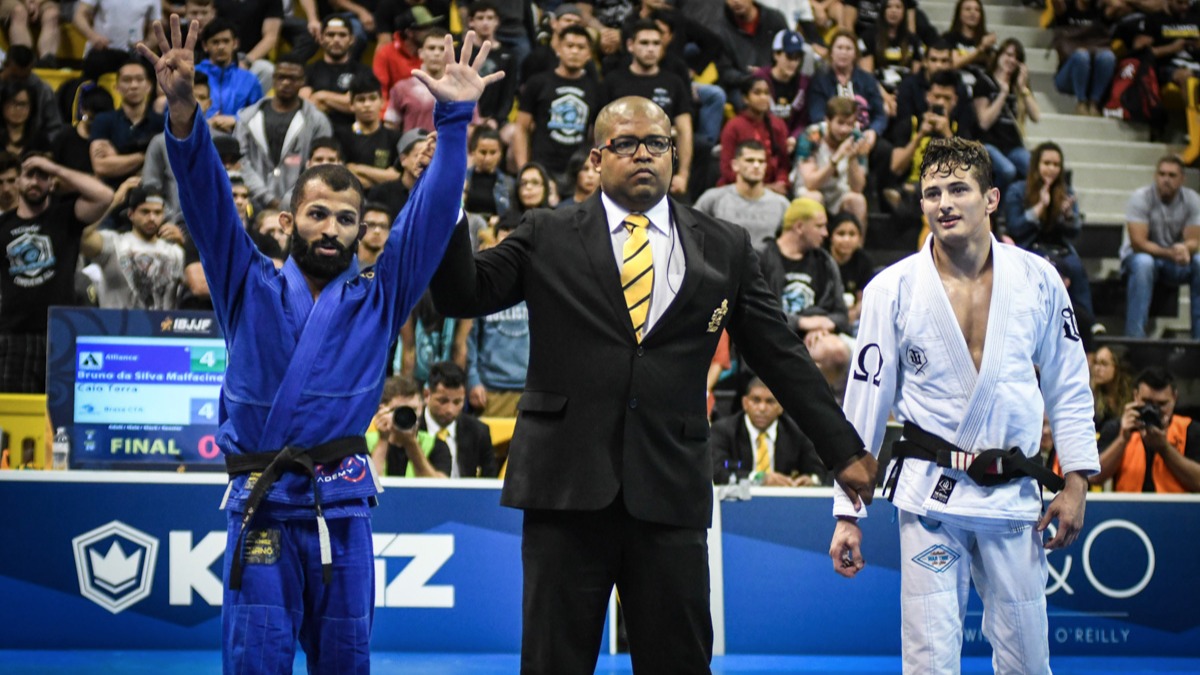
Bruno Malfacine (blue gi) wins his ninth world title versus Caio Terra. The match-winning points came from a situation which had been scored differently earlier in the day, and which Terra protested vociferously. Photo: Chase Smith / FloGrappling
At the end of the day if the athletes were unable to, at minimum, secure a solid positional advancement and consequently the match ends in a tie score, then the athlete has no room to argue that he or she "should have" won.
When I refer to a solid position, I'm talking about one from which the athlete has so much control that he or she can literally look up at the referee and watch him or her award undeniable points. If I cannot take my opponents down and keep them down, or pass their guards and control them for five to 10 seconds, then I don't deserve to be rewarded.
Advantages are not points. They are nothing. They a meager little assistants that help determine tied matches. It seems ridiculous to me to try and rely on an advantage to win a match. So, if you don't get the win because you were trying to game the advantage system, that's your own fault for not securing the position. If you let the match go the referee decision, then you should just plan on losing, because you certainly did not do enough to deserve a win.
There is nothing awesome about squeaking out a win by an advantage. I do believe advantages are helpful because they act as a form of transparency for decision making when the score is tied. They are supposed to keep the coaches and athletes informed and motivated to push the pace when the score is tied but one athlete is being more aggressive (and therefore winning by advantages).
The problem is that athletes have begun relying upon advantages to win when they can't actually do anything of significance to their opponents. The reality is that if you did not out score or submit your opponent, then you didn't deserve to win. Don't complain about the system like you are a victim. Take your loss like an adult and work to improve yourself.
It was like that famous "Oprah" episode when she was handing out cars to audience members, but instead it was accusations of referee robbery: "He got robbed, she got robbed, they got robbed, we got robbed!" On and on and on… You either won your match, or you got robbed.
But the question is, did you really get robbed? Or was it just a really close match that could have gone either way?


Shane Jamil-Hill Taylor versus Rubens 'Charles' Cobrinha, one of the most-talked about matches of the tournament. Cobrinha won via referees' decision after the scores were tied. Photos: Chase Smith / FloGrappling
Leaving it in the hands of the referees
It is called a "referee decision" because it is subjective. A referee can choose a winner based on, but not limited to, your takedown style, your submission attacks, your position control, your aggressiveness, or your strategic performance.This does not mean that the referee has to choose the athlete who was most aggressive or the athlete who attacked for the most submissions. The referee does not have to choose the athlete who controlled the majority of the match or the athlete who ended the match with a balls-deep triangle locked and loaded just as time expires.
The point is, if the score is tied, it is no one's fault except the athletes' for forcing the referee to choose a winner and a loser.
Referees are human too and make mistakes (I know)
The problem with the over usage of the word "robbery" is that if an actual robbery was to occur, the statement carries no weight. I'm sure there probably were some legitimate robberies that have occurred over the years at various tournaments.No referee is perfect. But when someone is telling me a story about how the referee robbed him or her of victory because of points or advantages, I stop listening and start thinking about how I can escape the conversation. Is that rude? Maybe. But the fact is that your perceived robbery is in the past. It doesn't matter anymore. Leave the past behind you, learn from it, and move on.

Josh Hinger on refereeing duty. Photo: Grapple.tv
I was a referee too once
I will openly admit that I was a referee once, and I made a mistake in a white belt match at a local tournament that ultimately gave the match to the wrong athlete. I didn't give points when I should have because it was a tricky situation, and I wasn't sure of how the rule should be applied.After the match, I asked another referee about the rule, and as it turned out, I made a mistake. It was years ago, and I still think about it and feel bad about it. And this is why I don't referee tournaments anymore.
I made several referee decisions that day, and the matches were all unique. I made the decisions based on my jiu-jitsu instincts and what I thought was a more dominant performance. But I have no doubt that another referee could have seen the matches differently.
Inconsistency, not robbery
In many cases, I see people mistaking robbery for inconsistency. Personally, I view robbery as something that is linked with the intentions of the referee. Robbery is taking something from someone while knowing that what you are doing is wrong. The optimist in me wants to believe that this is a very rare occurrence.Instead, I think rules are applied inconsistently based on referee interpretation. For example, in 2013, Ary Farias lost his black belt world title just seconds after the finals match ended due to a penalty for stepping outside of the competition mat area as he celebrated his victory. This match has been infamously referred to as a "robbery."
As much as I hate to admit it, the penalty was correctly given based on the way the rules are written. However, I have seen many athletes step outside of the competition mat area without receiving a penalty. It is hard to say that it was robbery when the rule is enforced as it is written. The problem is inconsistent rule enforcement -- not robbery.

Bruno Malfacine (blue gi) wins his ninth world title versus Caio Terra. The match-winning points came from a situation which had been scored differently earlier in the day, and which Terra protested vociferously. Photo: Chase Smith / FloGrappling
Everybody sees it differently
This may sound stupid and cliché, but jiu-jitsu is a martial art. And like all art, it is up for interpretation. That is the very nature of art. Everyone can look at a painting or sculpture and describe what he or she sees, and surely no one will see the same thing. Jiu-jitsu is art that is in motion. Surely everyone will see individual performances differently.At the end of the day if the athletes were unable to, at minimum, secure a solid positional advancement and consequently the match ends in a tie score, then the athlete has no room to argue that he or she "should have" won.
When I refer to a solid position, I'm talking about one from which the athlete has so much control that he or she can literally look up at the referee and watch him or her award undeniable points. If I cannot take my opponents down and keep them down, or pass their guards and control them for five to 10 seconds, then I don't deserve to be rewarded.
Advantages are not points. They are nothing. They a meager little assistants that help determine tied matches. It seems ridiculous to me to try and rely on an advantage to win a match. So, if you don't get the win because you were trying to game the advantage system, that's your own fault for not securing the position. If you let the match go the referee decision, then you should just plan on losing, because you certainly did not do enough to deserve a win.
There is nothing awesome about squeaking out a win by an advantage. I do believe advantages are helpful because they act as a form of transparency for decision making when the score is tied. They are supposed to keep the coaches and athletes informed and motivated to push the pace when the score is tied but one athlete is being more aggressive (and therefore winning by advantages).
The problem is that athletes have begun relying upon advantages to win when they can't actually do anything of significance to their opponents. The reality is that if you did not out score or submit your opponent, then you didn't deserve to win. Don't complain about the system like you are a victim. Take your loss like an adult and work to improve yourself.